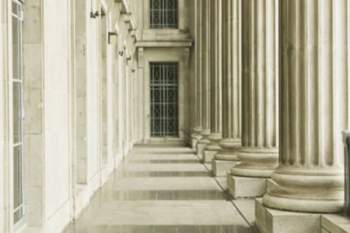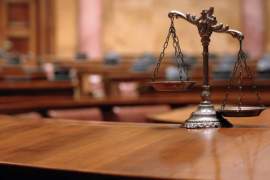
Eighteenth Amendment

Popular In Constitution
Purpose Of Lifetime Appointment And Pros And Cons Enumerated Powers Bicameral Legislature Background Article 3 Of The Constitution We The People 1st Amendment Who Wrote The Constitution Judicial Review Equal Protection Clause 5th Amendment 10th Amendment Three Fifths Compromise
The Eighteenth Amendment is the only Amendment to ever have been repealed from the United States Constitution--via the inclusion of the Twenty-First Amendment.
It is important to note that the 18th Amendment did not prohibit the consumption of alcohol, but rather simply the sale, manufacture, and transportation of alcoholic beverages. A result of the Temperance Movement, the concept of prohibition had already been implemented by many states prior to the ratification of the Eighteenth Amendment. Therefore, the 18th Amendment was quickly ratified into law.
The Temperance Movement would prove to become a powerful collection of individuals and factions that would garner a certain political power, which many politicians were afraid to confront. Church groups, the business elite, feminists, and political reformers were moving toward a dry society and began to call for a nationwide law banning alcoholic substances.
Initially, Senators were against a prohibition movement, but were also reluctant to vehemently vote against it. That is why a deadline was included within the proposal for the Eighteenth Amendment, calling for the ratification to be completed within seven years. However, this provision would not prove to be effective, for forty-four states approved the 18th Amendment in just over a year's time from its introduction.
The reluctance of the political powers also was reflected in imposing the effect of the Eighteenth Amendment a year from the completion of the ratification process. They did so in order to provide the liquor industry some time to adjust to what would essentially decimate the industry for the following ten years.
The implications of the 18th Amendment proved to be more negative than positive, for the effects took a turn for the worse rather than provide for a "dry" utopia. It is during the Prohibition Era that gave rise to organized crime in the United States, where criminals began to find illegal means to provide for the demand for alcohol. The creation of the mafia and mobsters led to a period of violence that would make the Government evaluate which was the greatest of two evils: alcohol or organized crime factions.
The Volstead Act, a Bill that was introduced to provide for a definition of terms used in the Eighteenth Amendment, was passed on January 17th, 1920, after Congress overrode the veto by President Wilson. The Volstead Act defined an intoxicating liquor as any beverage containing more than 0.5 percent alcohol. Beer and wine would also be banned as a result, which led to much controversy as well.
Further provisions would be enacted as a result of the Eighteenth Amendment, such as the restriction of medicinal liquor prescriptions, allowing searches without warrants in automobiles, and wiretapping of telephones for surveillance of illegal alcohol activity. It would not be until 1933, in which the overall effects of the 18th Amendment would prove to be more negative than positive and the 21st Amendment would repeal the Eighteenth Amendment completely and remove it from Constitutional law.


















